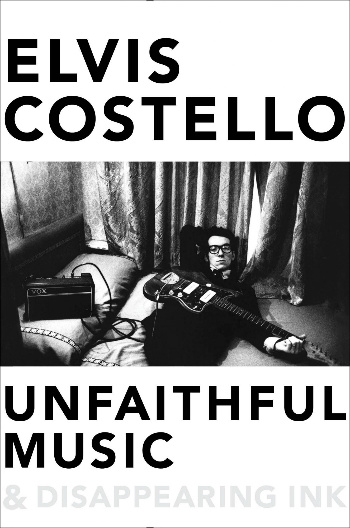A Lesson for Memoir Writers from Elvis Costello
Biff Barnes
I don’t pay much attention to celebrity memoirs. They are usually ghost-written and convey little insight into their subject.
 Courtesy of Stuart Staveros on Flickr under Wikimedia Commons
Courtesy of Stuart Staveros on Flickr under Wikimedia Commons
But when Elvis Costello, a singer/songwriter I have enjoyed for years appeared at Washington D.C.'s Sixth & I to discuss his memoir Unfaithful Music and Disappearing Ink, I went to hear what he had to say. Costello is somewhat unique among celebrities. He actually wrote his own memoir. I hoped he would talk about his writing process. I wasn’t disappointed.
Midway through the interview the moderator, Dan Kois, Slate's culture editor and a contributing writer to the New York Times Magazine, asked why he had chosen to jump around in time rather than simply presenting his life sequentially.

Costello smiled, gestured to the audience with open hands, and said, “I didn’t want to ruin the joy of reading Wikipedia.”
In that throwaway line, intended to get a laugh, Costello offered an important insight about writing a memoir. Memoir is a reflection, not a report. That’s a thematic approach rather than a chronological one.
A memoir author’s first task is to determine the specific theme he wants to pinpoint and to investigate, or the precise time period in his life that encompassed a great personal transformation that he wants to show.
Memoirist Jeff Goins, author of Wrecked and The In Between, on, The Write Practice, “Good narrative nonfiction always connects the reader’s heart to a deeper truth.” Exploring that deeper truth generally requires to the memoirist to break out of the bonds of chronology to explore the transformational moments or flashes of insight with which a reader can connect.